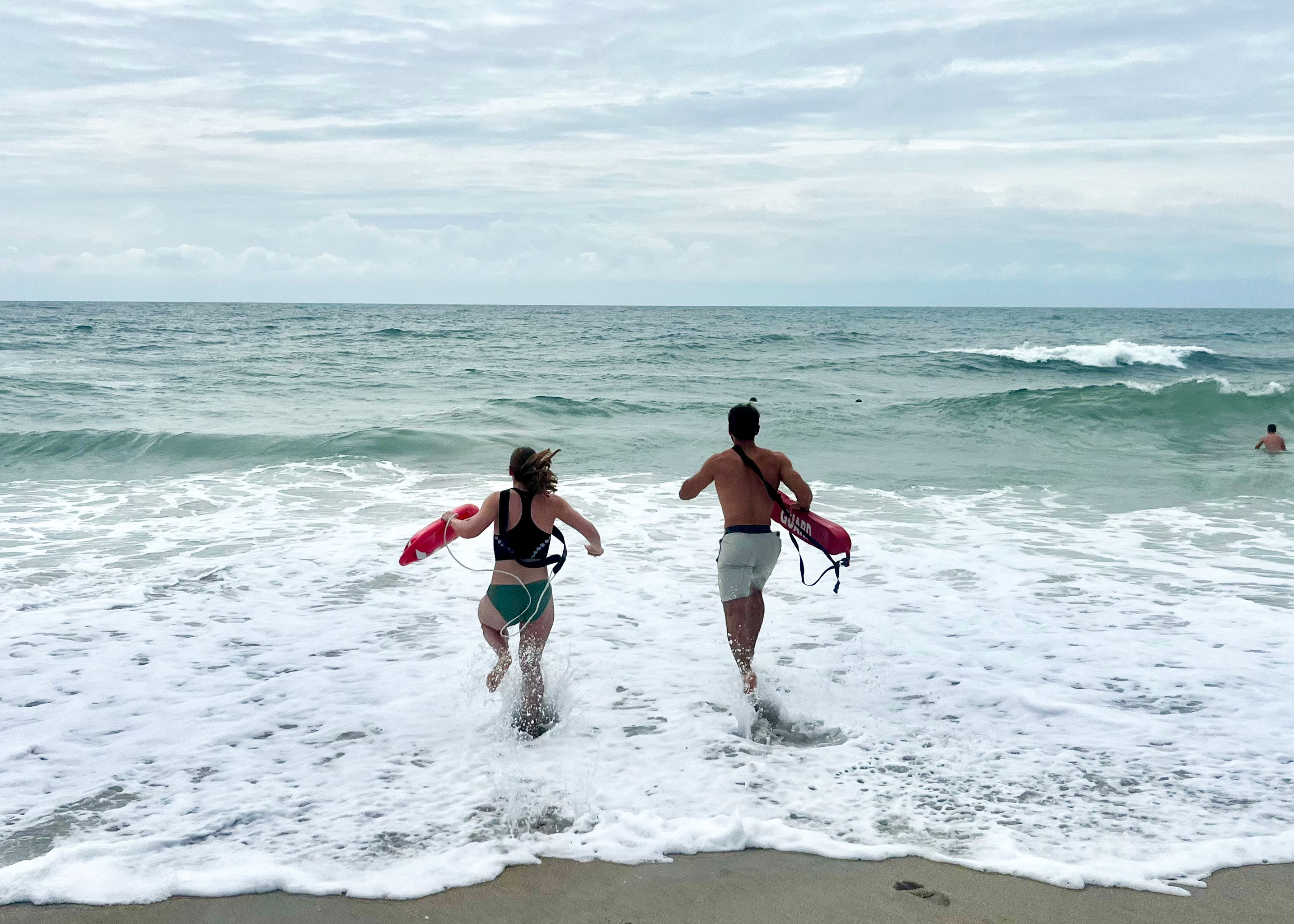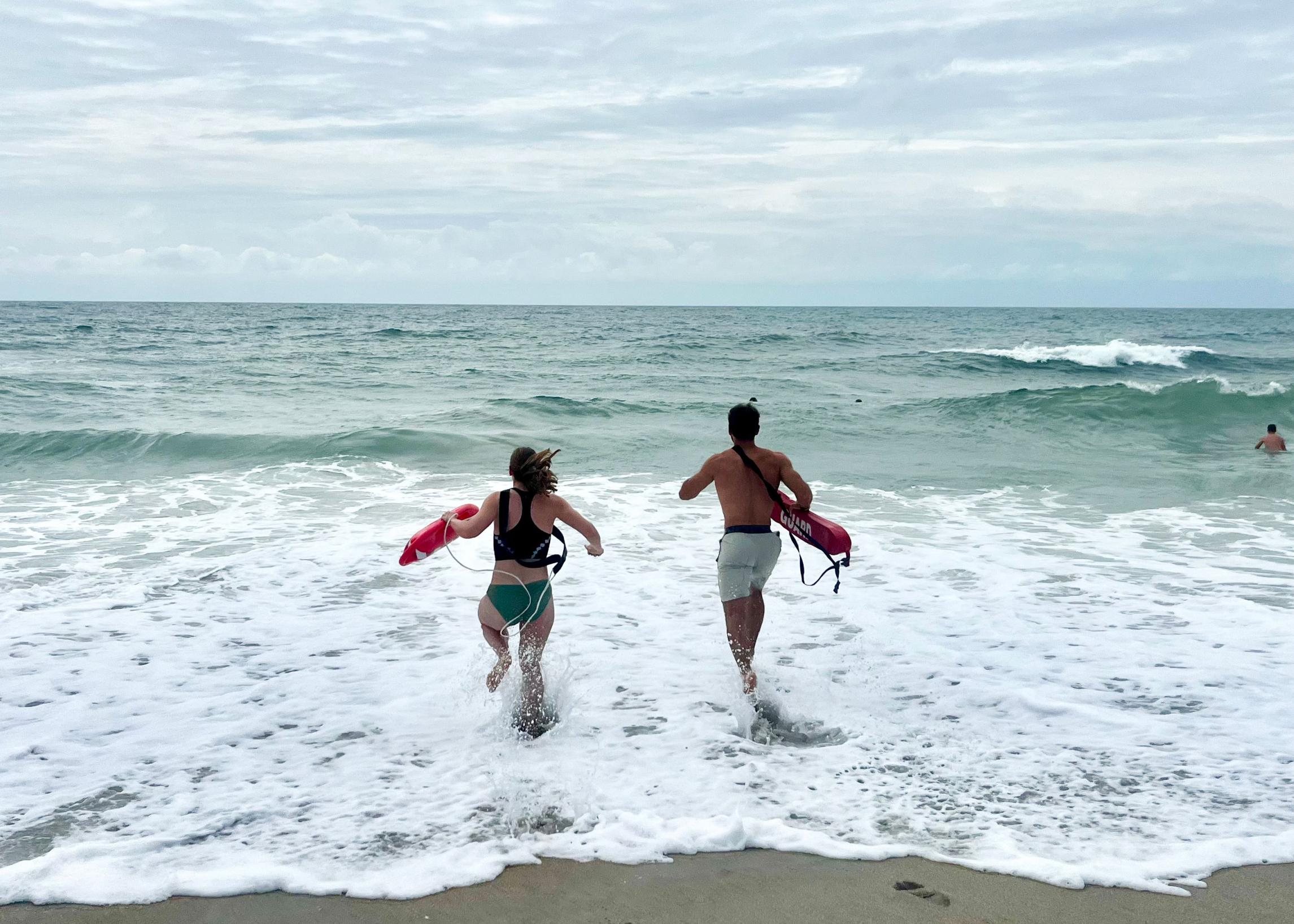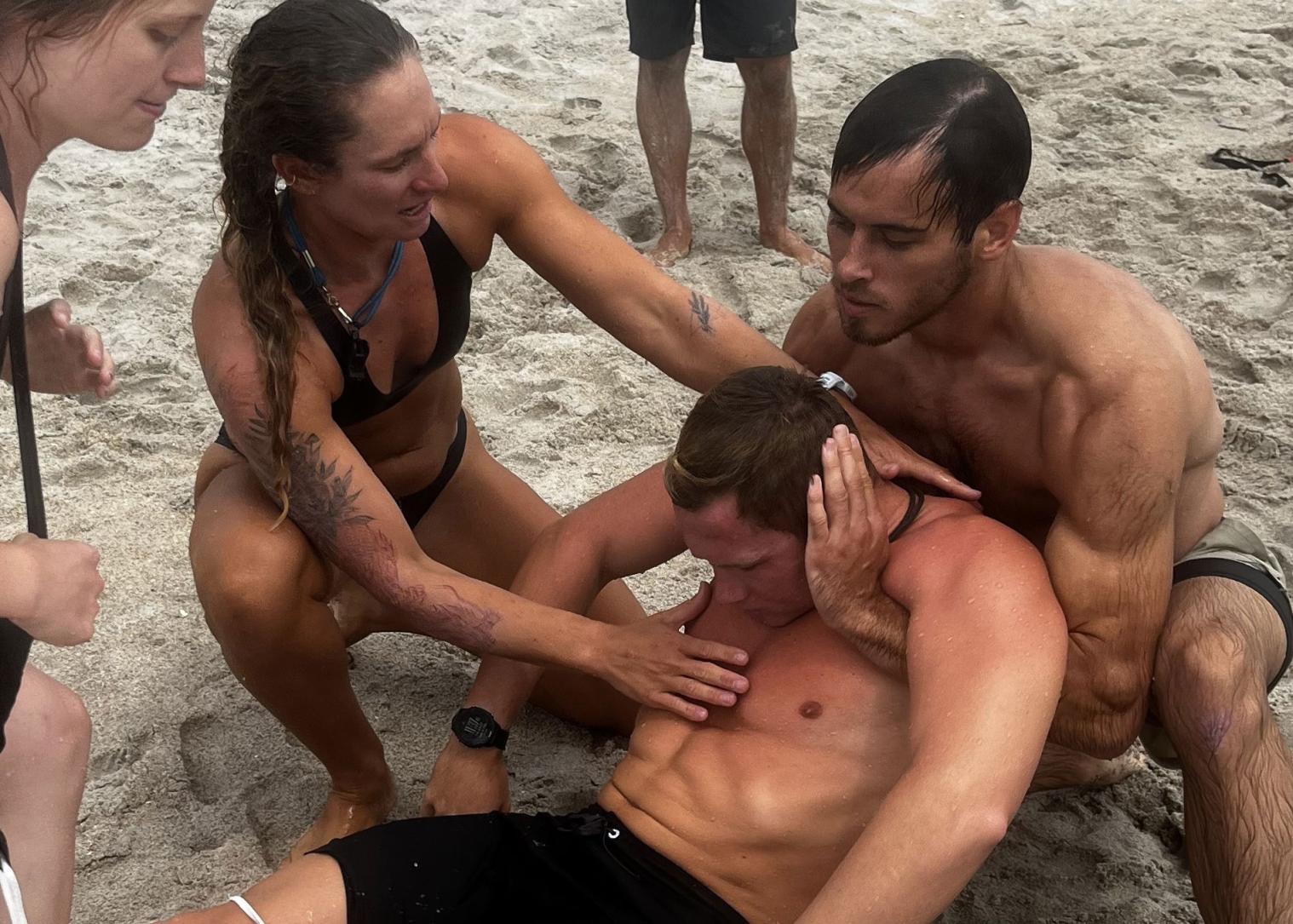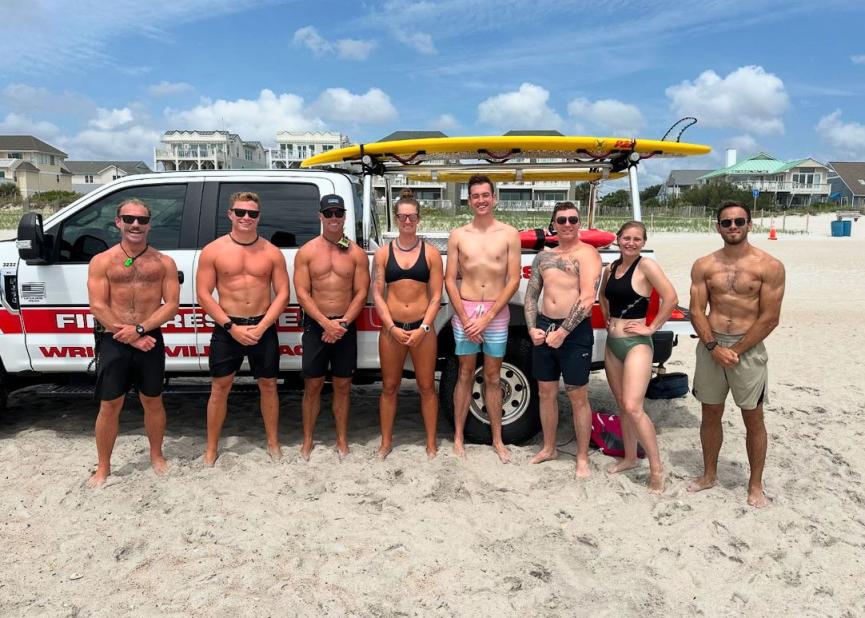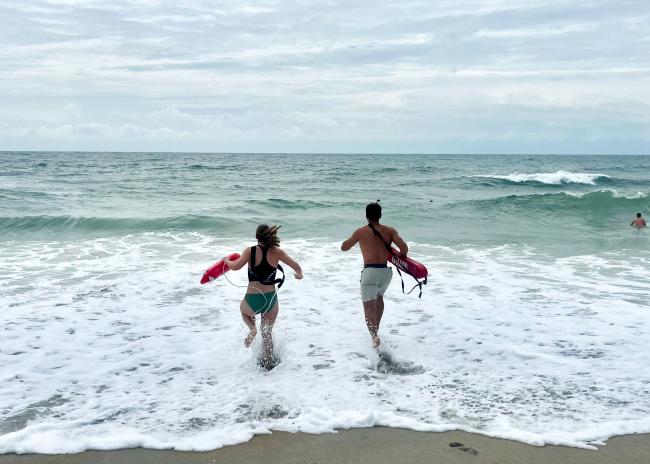
Jack Golder has a long-standing passion for emergency and wilderness medicine. In Charleston, where he studied public health at the College of Charleston, Jack served as an advanced emergency medicine technician, putting his skills to work for a 911 system as well as an ocean rescue organization.
“I saw the importance of pre-hospital care and how the care we provide isn't a simple algorithm, but based on the situation at hand,” he observed.
Now a member of VCOM-Carolinas Class of 2027, Jack serves as chair of the Wilderness Medicine student organization and puts his passion to work coordinating events that provide hands-on training with an emphasis on pre-hospital emergency care in cases such as drowning, environmental injuries and trauma.
“I want to provide students with experiences that allow them to go outside of their comfort zone and apply their knowledge in unpredictable environments,” Jack said.
Most recently, students from Wilderness Medicine, a subgroup of the VCOM-Carolinas American College of Osteopathic Emergency Physicians (ACOEP), joined forces with Wrightsville Beach Ocean Rescue (WBOR) to enhance their skills in ocean rescue techniques.
WBOR, in Wrightsville Beach, North Carolina, is a division of the Wrightsville Beach Fire Department and is responsible for ensuring public safety on and around the beach strand. WBOR is certified as an advanced lifesaving agency by the U.S. Lifesaving Association.

The ocean rescue training pushed us beyond the comfort of a clinical setting introducing variables like physical fitness and resource limitations and challenged students to adapt their clinical decision-making skills to their environment.
With the increasing popularity of outdoor recreation, particularly in aquatic environments, the importance of wilderness medicine has never been greater. Activities such as swimming, boating, and surfing are enjoyed by many, but they also pose significant risks. Medical professionals equipped with wilderness and emergency medicine skills are crucial in managing injuries and emergencies that arise in these settings. Understanding how to effectively respond to drowning incidents, hypothermia and other environmental hazards can be lifesaving.
“The WBOR training provided students with the opportunity to apply classroom knowledge in a hands-on, austere environment,” Jack explained. “For instance, in Block 4, we learned advanced cardiac life support (ACLS) through the SIM center. However, during this training, we were shown how recent developments in evidence-based medicine have transformed the care of beachside drowning victims, subsequently altering ACLS treatment standards.”
For medical students, participation in extracurricular experiences like this ocean rescue training offers invaluable benefits.
